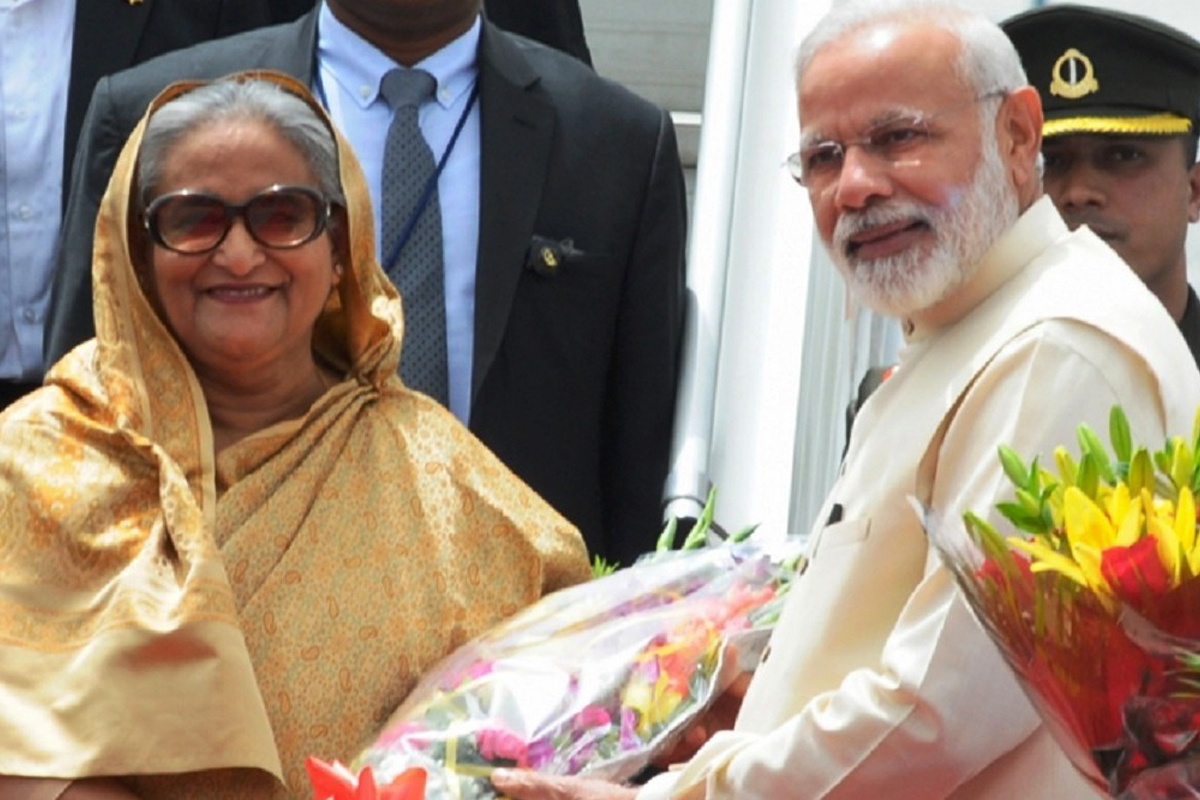The announcement of a scholarship for the direct descendants of Indian soldiers who fought in the 1971 Liberation War by Bangladesh Prime Minister Sheikh Hasina in New Delhi on Tuesday was, as symbols go, a powerful and evocative one. It underlined the spirit of 1971, as it were, which was perilously close to dissipating in the decades which followed Bangladesh gaining its independence ~ first due to the re-emergence of Islamist forces in that country, both as terror groups and as factions in mainstream political parties, and in more recent times due to China’s concerted effort to expand its strategic footprint in South Asia for which Dhaka has been assiduously wooed with easy monies by Beijing.
It is in this context that Prime Minister Narendra Modi’s call for both countries to resist and fight forces looking to undermine and “attack” the mutual trust between India and Bangladesh at a meeting with his visiting Bangladeshi counterpart needs to be understood. The rise of extremism in Bangladesh, against which Ms Hasina and the party she leads, the Awami League, are still the strongest bulwark, is a clear and present danger to not only that country but India too. The radicalisation of Bangladeshi youth can be seen in their increasing involvement in the violent targeting of minority Hindu religious festivals, places of worship, and women.
Advertisement
To its credit, the Hasina Administration has spoken out unequivocally against such attacks and crackdowns have been launched albeit with mixed results. But administrative action can at best control, not eradicate, a societal mindset encouraged by religious fundamentalism. The spill-over of Wahabi Islam, as opposed to the largely syncretic religious practices of Bengali Muslims, into neighbouring states of India has led to extreme polarisation. Within Bangladesh, pro-Pakistan elements are not only active but are suspected by the Indian establishment of being guided to target moderate Muslim voices and paint them as “antiIslam” thereby undermining ~ with an aim to eventually delegitimise ~ the Sheikh Hasina government.
The pincer-grip Dhaka faces today is of China’s debttrap from one side and Pakistan’s promotion of fundamentalist forces more amenable to Islamabad’s overtures on the other. That’s where New Delhi comes in, to keep the spirit of 1971 alive. The inking of seven bilateral agreements between India and Bangladesh during Ms Hasina’s visit including one for sharing waters of the Kushiyara River, as well as agreements to enhance cooperation in trade, energy, connectivity, water resources, security, and defence, are significant in this regard, as was the inauguration by the PMs of phase one of the Khulna thermal power plant.
Mr Modi emphasised in his remarks after the meeting that India is the largest market in Asia for Bangladeshi exports, hinting that discussions on a free trade agreement would be speeded up. Crucially, both sides also agreed to remain mindful of each other’s security concerns and strategic priorities in what has been officially described as a “cooperative matrix of engagement”.
A version of this story appears in the print edition of the September 8, 2022, issue.
